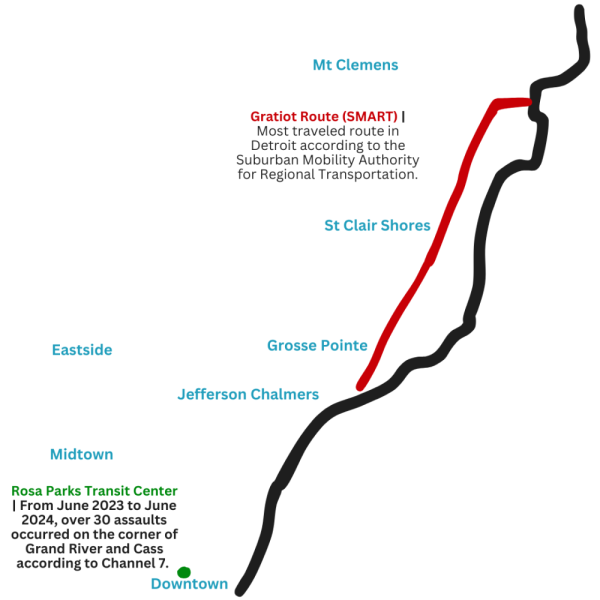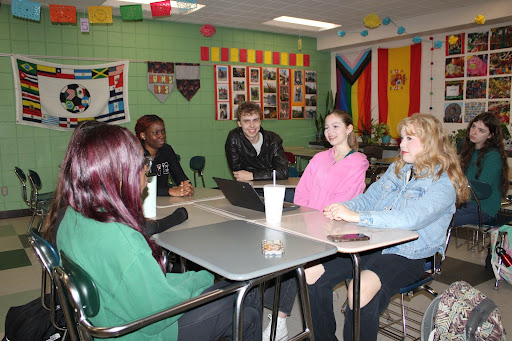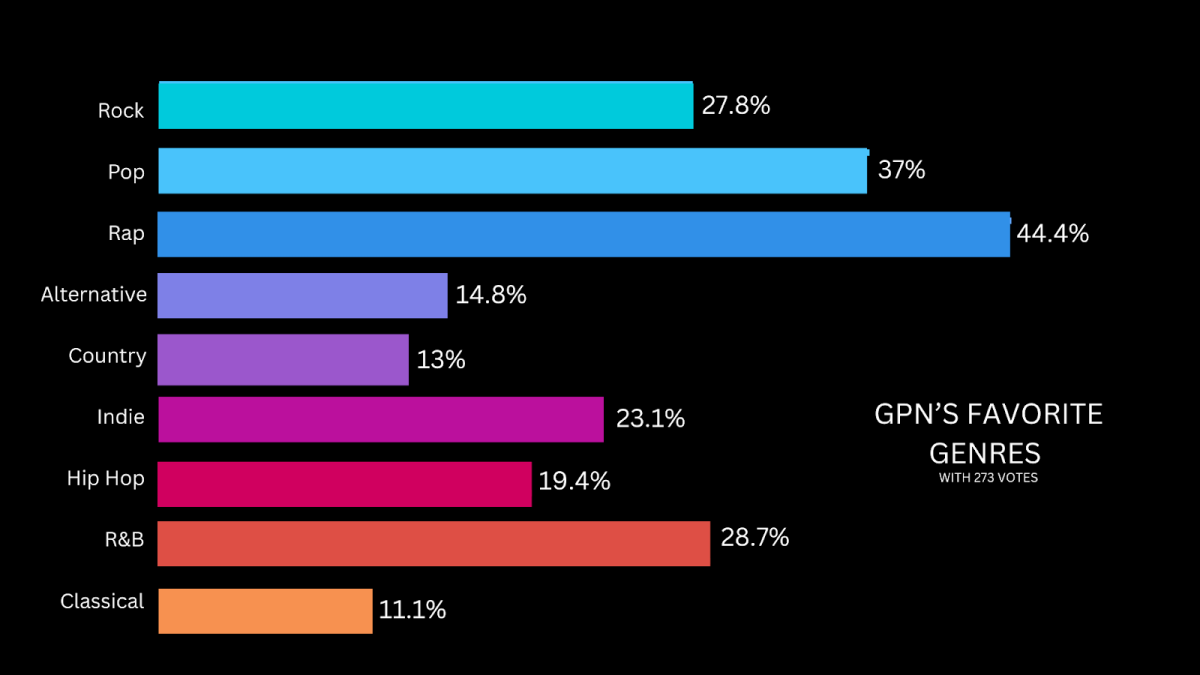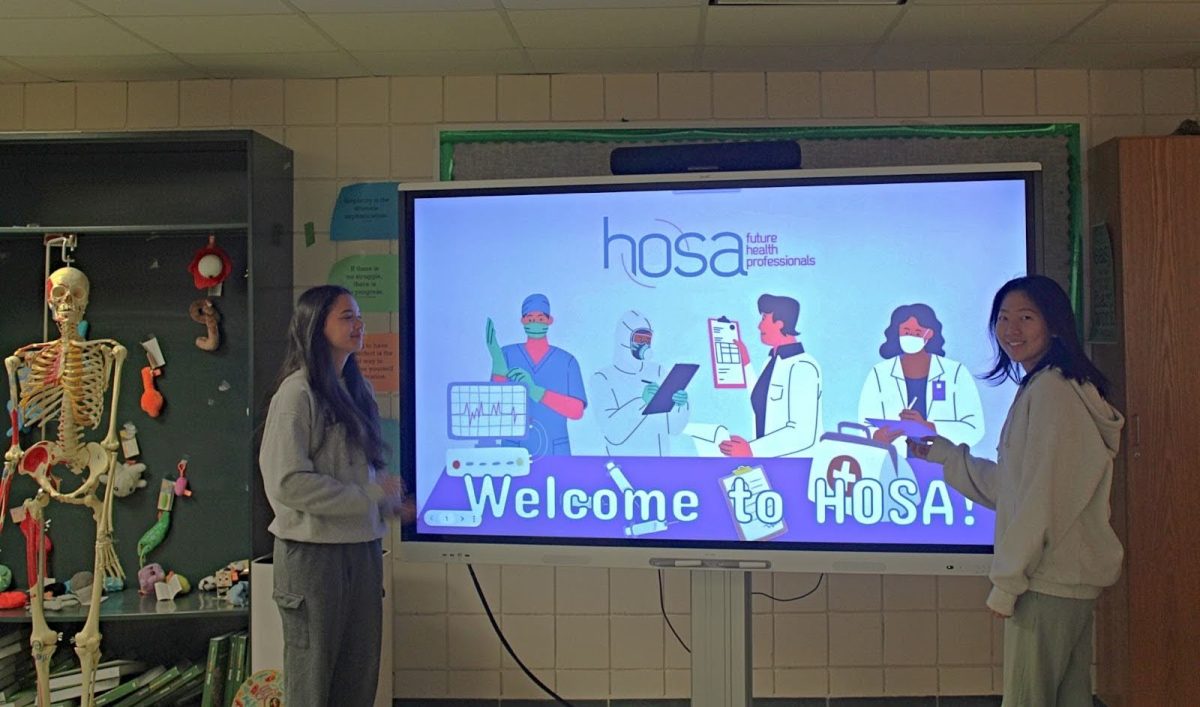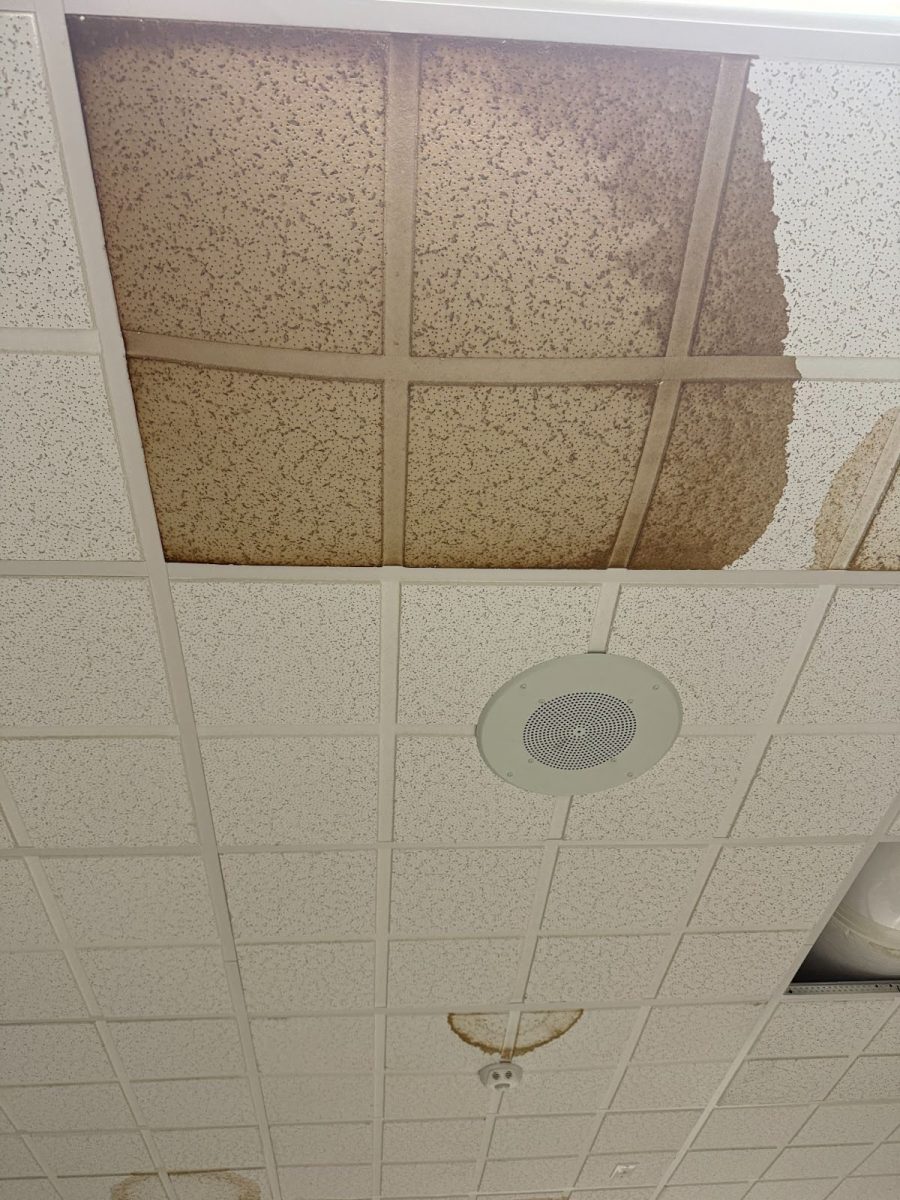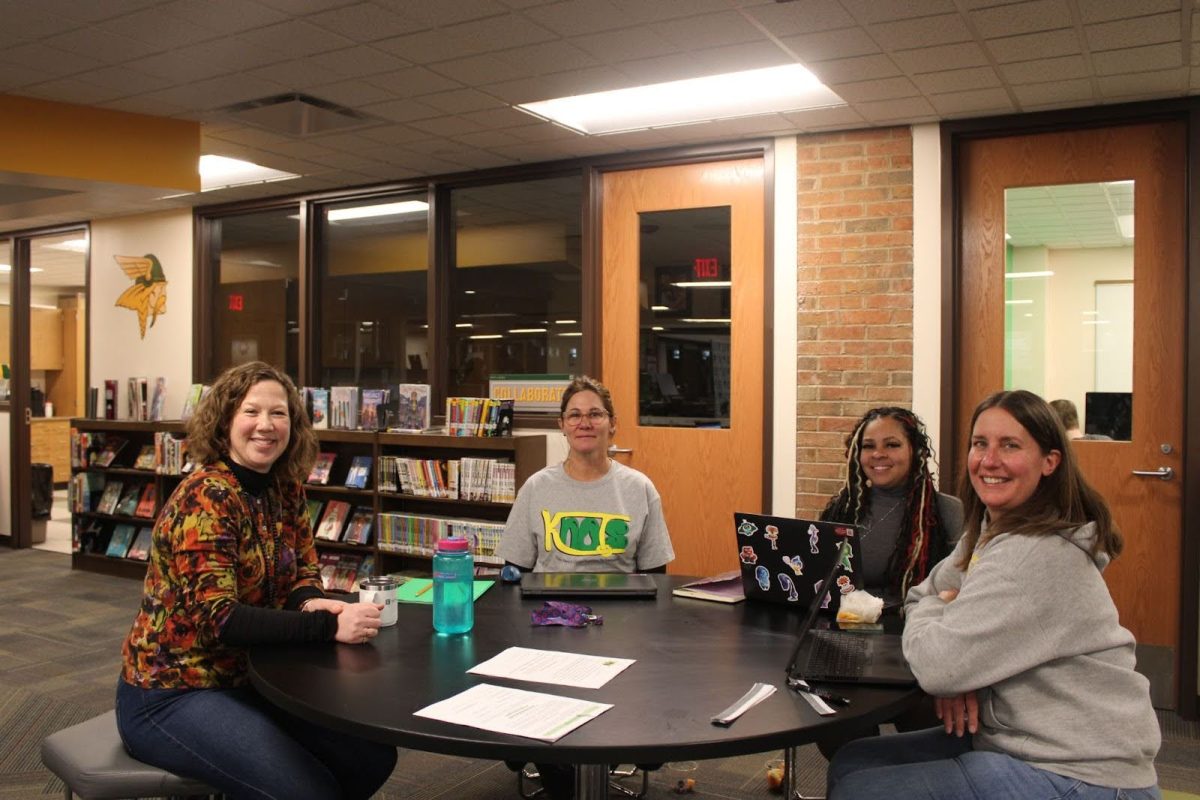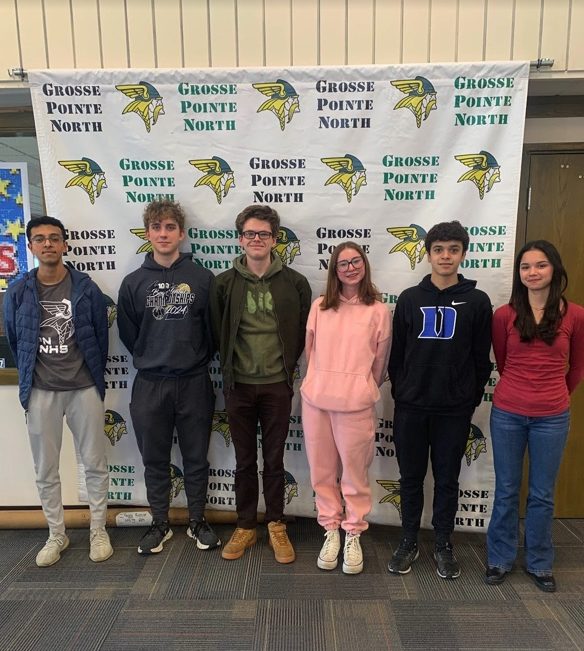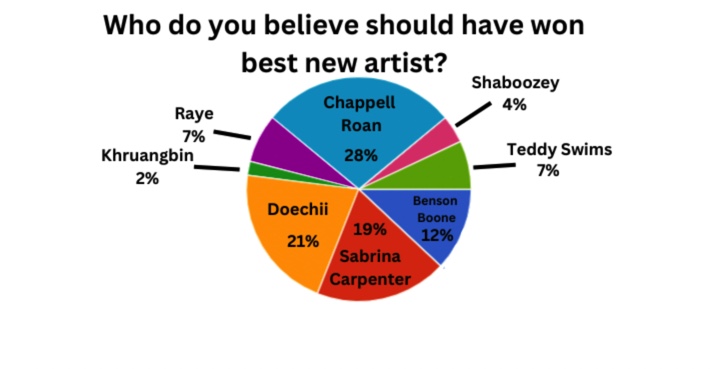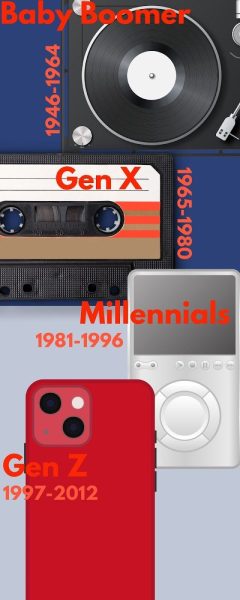
It’s Thanksgiving dinner and your grandma and cousin are going back and forth shouting words like, “kids these days” and “you just don’t understand what it’s like to grow up these days.” Although generational divides have persisted throughout the years, now more than ever, it seems that the old and the young have been battling it out.
For senior Charlotte Julien, who lives in a household with her Gen Z sisters, Gen X parents and Boomer grandmother, she is no stranger to the differing belief systems and ways of processing. As a way to bridge the gap between the different generations, the Julien family plays board games that not only test the knowledge of each age group but also celebrate the differences between them.
“There’s this game that me and my family play all the time called ‘Mind the Gap,’” Julien said. “And basically there’s like four different sections of questions–everybody wants my grandma to be on their team, because then they for sure have someone to answer the boomer questions.”
While the Julien family has found ways to cooperate with each other, differences between generations can prove detrimental to future progress, especially where technology and media are concerned. However, according to David Merolla, associate professor and Department chair of Sociology at Wayne State University, each generation is more alike than different.
“If you’re 80 years old right now, I mean, you were in your 60s before smartphones even became a thing, compared to if you’re 20 years old, this has been a part of your life ever since you could remember,” Merolla said. “You are going to see some differences there. But I think there’s always going to be the option for cooperation. And I think when push comes to shove, people generally can come together and find reasonable solutions to some of the big challenges.”
Generational differences often emerge most clearly in how people interact with each other, especially as social media has gained popularity. One of the biggest differences between generations is how open people are about their personal lives, according to sociology teacher Dan Gilleran. Younger people today tend to share personal thoughts and experiences much more freely, especially online.
“Your generation [Gen Z] is very upfront and honest about their feelings and are very willing to share a lot where many times in my generation we wouldn’t share all that much personal stuff,” Gilleran said.
As an endless cycle of young people gain power and the older members of society lose theirs, a level of anxiety exists between the two groups. According to Merolla, since people are living longer and witnessing the changes in society, arguments about how the younger generations will navigate the future begin to arise.
“They’re young adults, they’re adolescents, and [the older generation] have a lot of angst and anxiety about what’s going to happen when these people take over,” Merolla said. “How are these young people going to operate when they’re the ones sort of in positions of power, and they’re the ones running things and they’re the ones who have to make sure things are continuing to go.”
However, Julien believes there is always a way to bridge the gaps between generations and she encourages people who want to connect with the older generations to be more receptive to what they have to say.
“I would say probably just be open minded, like listening to their stories, because you can learn a lot from them,”Julien said. “And I think they like to connect with you too, and hear your stories also.”
Q&A with David Merolla, associate professor and department chair of Sociology at Wayne State University:
Q:Why do you think people, especially more recently, have latched on to identifying with their generation?
A: I think it’s probably just sort of a function of, we hear about these terms in the media. And so once these sorts of labels are out there and they exist, and it can become kind of an identity, then people are apt to kind of put themselves into one of those.
Q: What do you think that the increased usage of social media will do to this gap?
A: I think it definitely has a chance to continue to widen it in the sense that as social media has become really the dominant form of information consumption, particularly among the younger generations. You really do see people living in sort of different realities based on where they’re getting their information.
Q: What strategies would you say could help bridge the growing gap between the generations?
A: Keep in mind this difference between the effect of time or people getting older versus the effect of generation, or just when you were born.
Q: Do you foresee any potential generational cooperation on some of the large scale issues that our country is facing right now?
A: I think so. I mean, I think once– things progress and as younger people get more into positions of power, and I think as they sort of propose solutions that seem reasonable and effective. Then I think you generally see the older generation kind of coming on board.


